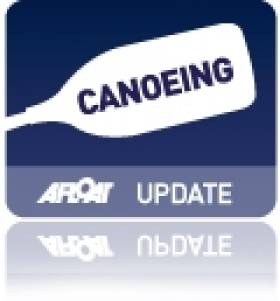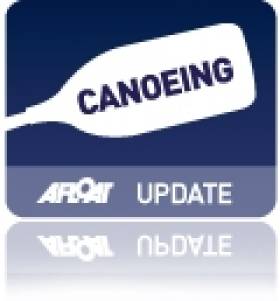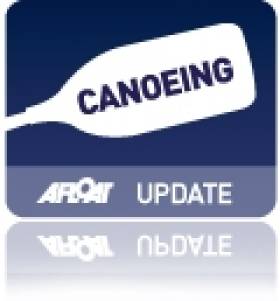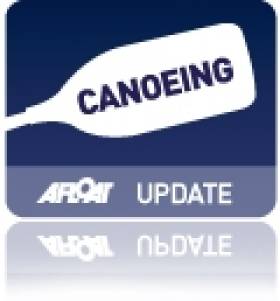Displaying items by tag: Moscow
Jezierski Eighth in B Final at Canoe Sprint World Championships
#CANOEING: Andrzej Jezierski finished eighth of nine in his B Final of the men’s C1 200 metres at the Canoe Sprint World Championships in Moscow today. It placed him 17th in the world. On Saturday, Michael Fitzsimons and Barry Watkins won their C Final to finish 19th overall in the men’s K2 1,000 metres, which is also an Olympic discipline.
Canoe Sprint World Championships, Day Four (Irish interest, selected results)
Men
K2 1,000m – C Final (Places 19 to 27): 1 M Fitzsimons, B Watkins 3:15.327.
K2 200m – Semi-Final: 7 P Egan, S Dobrovolskis 34.004.
C1 200m – Semi-Final (First Three to A Final; next Three to B Final; rest out): 1 Lithuania 38.320; 6 A Jezierski 39.638.
K1 5,000 – Final: 1 Australia 20 mins 12.981; 21 P Egan 22:52.889.
Women
K1 – B Final (Places 10 to 18): 4 J Burke 3:05.18.
K1 200 – Semi-Final: 8 J Egan 43.097.
K1 5,000 – Final: 1 Britain 23 mins, 10.957 secs; 11 J Egan 24:08.510
Sunday
Men
C1 200 – B Final (Places 10 to 18): 1 Azerbaijan 38.885; 8 A Jezierksi 40.926.
#CANOEING: Pat O’Leary placed ninth in his A Final and four Ireland crews made it to the semi-final stages at the canoe sprint World Championships in Moscow today. Andrzej Jezierski had the best placing in a heat, finishing fourth in the C1 200 metres. Ireland will have three semi-finals tomorrow: Jenny Egan competed in her K1 500m semi-final today and finished ninth.
Canoe Sprint World Championships, Day Three (Selected Results; Irish interest)
Men
K2 200m – Heat Five (All 7 Through to Semi-Final): 1 Italy 32.134; 6 P Egan, S Dobrovolskis 35.995.
K1 (Legs Trunk and Arms) 200m – A Final: 1 Ukraine 39:208; 9 P O’Leary 42.541.
C1 200m – Heat Three (First 6 to semi-finals): 1 Spain 39.622; 4 A Jezierski 40.886.
Women
K1 500m – Heat One (First Six to Semi-Finals): 1 Hungary 6:18.13; 5 J Egan 6:22.11. Semi-Final: 9 Egan 2:00.619.
K1 200 – Heat Five (Seven to Semi-Final): 1 Kazakhstan 40.687; 7 Egan 45.092.
#CANOEING: Barry Watkins and Michael Fitzsimons finished sixth in their semi-final of the men’s K2 1,000 metres at the Canoe Sprint World Championships in Moscow today, and must compete in the C Final. Jenny Burke finished fourth in her semi-fnal of the women’s K1 1,000 metres and qualified for the B Final.
Canoe Sprint World Championships, Day Two (Irish interest)
Men
K2 1,000m – Heat Four (First Seven to Semi-Final): 1 Australia 3:08.461; 4 M Fitzsimons, B Watkins 3:13.156. Semi-Final: 6 Fitzsimons, Watkins.
Women
K1 1,000m – Heat One (First Directly to Final; 2-7 to Semi-Final): 1 Hungary 3:53.854; 4 J Burke 4:07.379. Semi-Final One (First Three to A Final; 4-7 and one best time to B Final): 1 Serbia 4:00.884; 4 Burke 4:15.147.
O'Leary Qualifies for Canoe Sprint World Final
#CANOEING: Ireland paracanoeist Pat O’Leary finished third in his semi-final and qualified for the final of the K1 LTA 200m at the Canoe Sprint World Championships in Moscow today. The legs, trunk and arms competitor was fifth in his heat. The top three in the semi-finals qualified for the finals.
Canoe Sprint World Championships (Day One, Irish interest)
Men
K1 (Legs, Trunk and Arms) Heat Two (First directly to Final; 2-7 to Semi-Final); 1 Romania 40.211 seconds; 5 P O’Leary 43.198. Semi-Final (First Three to A Final): 1 Britain 42.473; 3 O’Leary 43.538.
.
British Sailors Want Redress Over 1980 Olympic Boycott
#OLYMPICS - "Lingering bitterness" among British sailing veterans over the boycott of the 1980 Moscow Olympics has pushed them to seek recognition for the effort they put into their campaigns, the Daily Telegraph reports.
The Royal Yachting Association (RYA) was one of four sporting bodies that joined the British government's boycott of the Olympics that year.
But according to the sailors who had earned their spots at the games, the RYA's decision was made without consultation with them or the body's membership.
“They took away our dream, the fruits of months and years of hard work and dedication which is something I will regret until my dying day,” said Soling sailor Gavin Simonds, who is leading the charge for the RYA to make amends before London 2012 and assure that no sailor will be so deprived in future.
Simonds' brother Colin was the one of the leading Soling sailors in the world in 1980, and was reportedly devastated when the RYA backed that year's boycott.
The 1980 games saw Ireland win its only Olympic medals in sailing when David Wilkins and James Wilkinson took silver in the Flying Dutchman class. The president of Irish sailing's governing body has an honourary seat on the RYA council.
The Daily Telegraph has much more on the story HERE.




























































